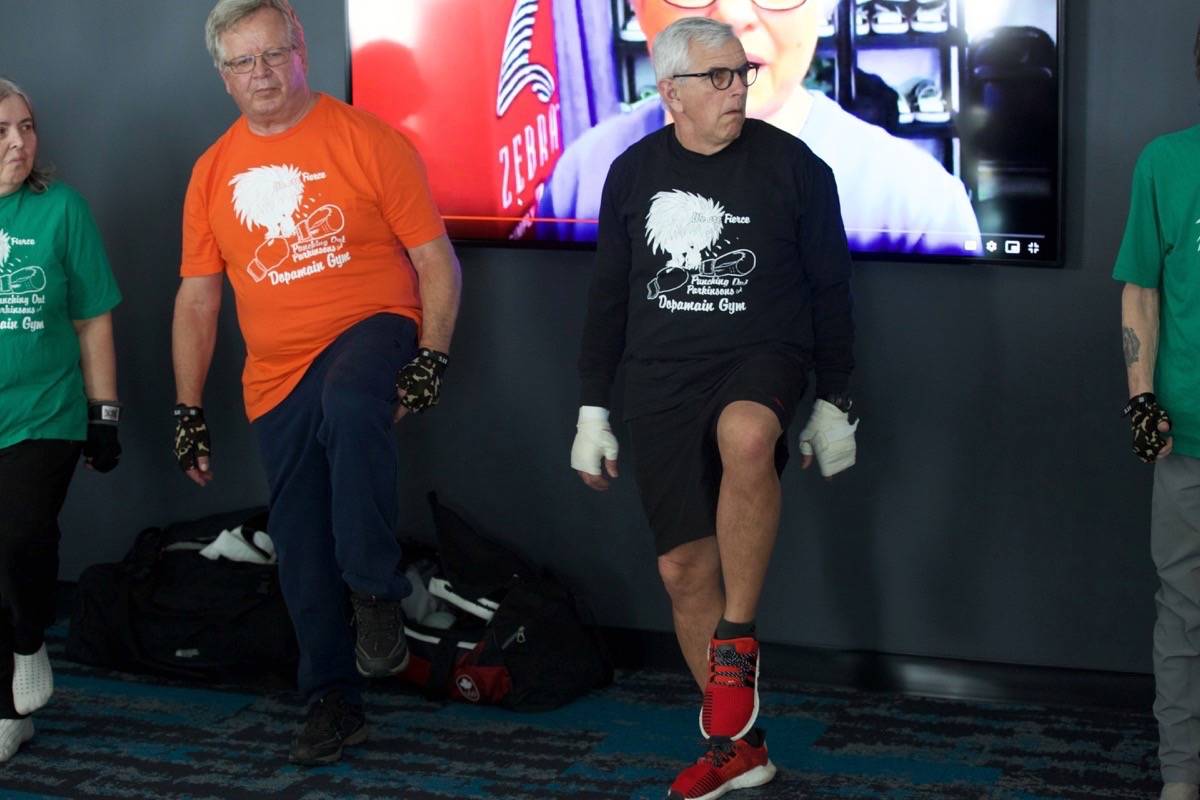Students in a Red Deer College Adaptive Physical Education class were learning how boxing can positively change the lifestyle of someone suffering from Parkinson’s disease Tuesday afternoon.
Members of Red Deer’s Dopamain Gym talked about the changes taking up boxing has made in their lives, and even showed off some sparring moves to the class.
Grant Kozak was diagnosed with Parkinson’s in 1995. Since taking up boxing a year and a half ago, he has noticed vast improvements to his balance and cognitive skills, he says.
“I don’t fall as much,” he says. “My cognitive skills are better.”
Right now, Kozak boxes three times a week for an hour and a half.
Overall, he says his attitude has improved.
“We light up like little kids,” he says of himself and his fellow boxers. “It’s like your youth comes back to you.”
Longtime boxing coach Doug Rowe founded Dopamain Gym three years ago after learning how boxing can help individuals suffering from Parkinson’s disease.
He says the disease causes a loss in many of the same skills that boxers train to improve.
“It’s been amazingly successful,” he says, adding that those suffering from the nervous system disorder experience a loss of facial expressions. “When we started this program, we were told we wouldn’t see results for six weeks but the first thing we saw within three weeks was that people were smiling and laughing.”
According to Rock Steady Boxing, a non-profit working with those suffering from the disease by teaching non-contact boxing skills, published medical research has shown that forced, intense exercise can reduce, reverse and delay Parkinson’s symptoms.
“A lot of our clients came in and were stooped in their walk,” says Rowe.
“They are straight as an arrow now. They are all walking very, very straight. One lady hadn’t been able to taste food in a while. She can taste food. We had a guy with a cane and now he is no longer walking with a cane. He is actually back dancing again.”
With boxing, he says, his clients have not only stabilized their symptoms but also improved them.
“What it does is neurologically it opens up new neural pathways. It refurbishes the old neural pathways,” he says.
“In our society, we are very sedentary and hardly never engage that flight or fight instinct. Boxing engages that flight or fight mechanism that produces more dopamine to the brain and also providing endorphins and improving balance so it makes a huge difference in the quality of our fighters life.”
For more information about Dopamain Gym, see the Facebook page.



